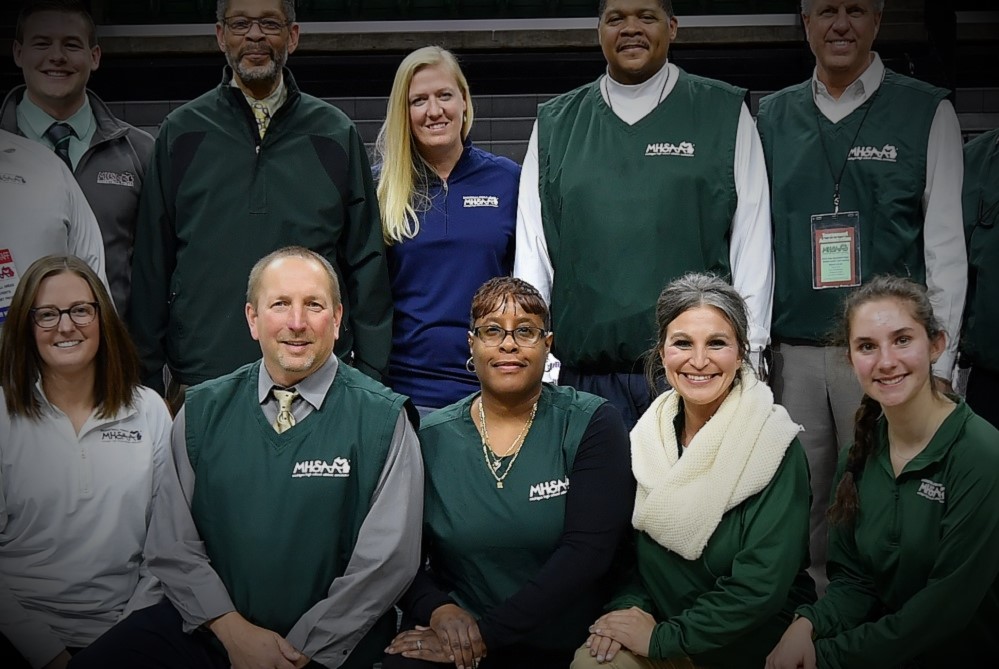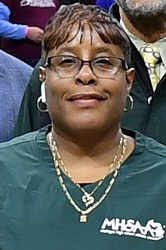
Sorting It Out
February 4, 2014
The MHSAA has a good relationship with the high school coaches associations of Michigan in spite of the fact that the MHSAA sometimes befuddles and frustrates some associations’ leaders and members. This occurs, for example, when a coaches association’s board of directors votes unanimously in support of a change in policy or procedure which fails to be adopted by the MHSAA Representative Council. Every so often over the past 25 years, I’ve had to provide reminders of why this occurs – in fact, why it must occur.
First, a coaches association is just that – an association of coaches; and coaches are but one of the many important voices to whom the MHSAA pays regular attention. The MHSAA also must hear the opinions of athletic directors, principals, superintendents, boards of education, contest officials and others. Typically, coaches desire more of everything: contests, classifications, trophies and medals. Just as predictably, most administrators seek reasonable limits on such things and can often be heard to say, “Enough is enough.”
Second, the makeup of many of our state’s high school coaches associations’ boards of directors, and even the associations’ members, do not reflect the MHSAA’s full membership. Understandably, many coaches associations’ board members are disproportionately from large schools in the southern or even southeastern part of Michigan.
And third, by their nature, coaches associations advance proposals for a single sport, which could impact other sports positively or negatively. There is no question that if one sport “gets” something, like another tournament classification or division, other sports will seek the same consideration which may or may not be practical for or beneficial to other sports.
When considering a proposal from a coaches association, MHSAA Representative Council members will almost always ask themselves: “Who’s not in the room? Who are we not hearing from? Is there another side of the issue? How does this play out among small schools, or urban schools, or northern schools? How will this affect other sports?”
We look to coaches associations for sport-specific advice; and we urge them to seek input from a constituency that is as large and diverse as possible. We look to other stakeholders to add their advice and counsel to the process; and we depend on the Representative Council to sort it out and seek the proper balance.

In Memoriam: Brenda Henry (1967-2021)
By
Geoff Kimmerly
MHSAA.com senior editor
April 30, 2021
Brendaettie “Brenda” Henry, a dedicated academic and athletic presence at Detroit Western International High School for more than three decades and an integral member of the tournament management staff annually for the MHSAA Girls & Boys Basketball Finals at Breslin Center, died unexpectedly April 21.
Henry had served on staff at Western since 1989, most recently as an academic interventionalist in charge of working with seniors and getting them scholarships, and she also oversaw Western’s night school IMPACT (formerly Second Chance) Program that assists high school students with credit recovery.
 She also had served as Western’s athletic director for four years and coached volleyball, basketball and track & field, and she was a registered MHSAA basketball official for 14 of the last 16 seasons.
She also had served as Western’s athletic director for four years and coached volleyball, basketball and track & field, and she was a registered MHSAA basketball official for 14 of the last 16 seasons.
Every winter for nearly 15 seasons, Henry’s educational service extended to her MHSAA basketball family as she contributed to championship weekends at Breslin and previously Eastern Michigan University.
“Brenda had a huge heart for people, and that’s why she was such a valuable part of our basketball tournament staff for so many years,” MHSAA Executive Director Mark Uyl said. “She was a huge reason the Breslin experience has been special for so many people.”
Henry, an alum of Detroit Northern High School, worked in Detroit Public Schools for more than 35 years total. She also was a sign language interpreter and active part of her church community.

